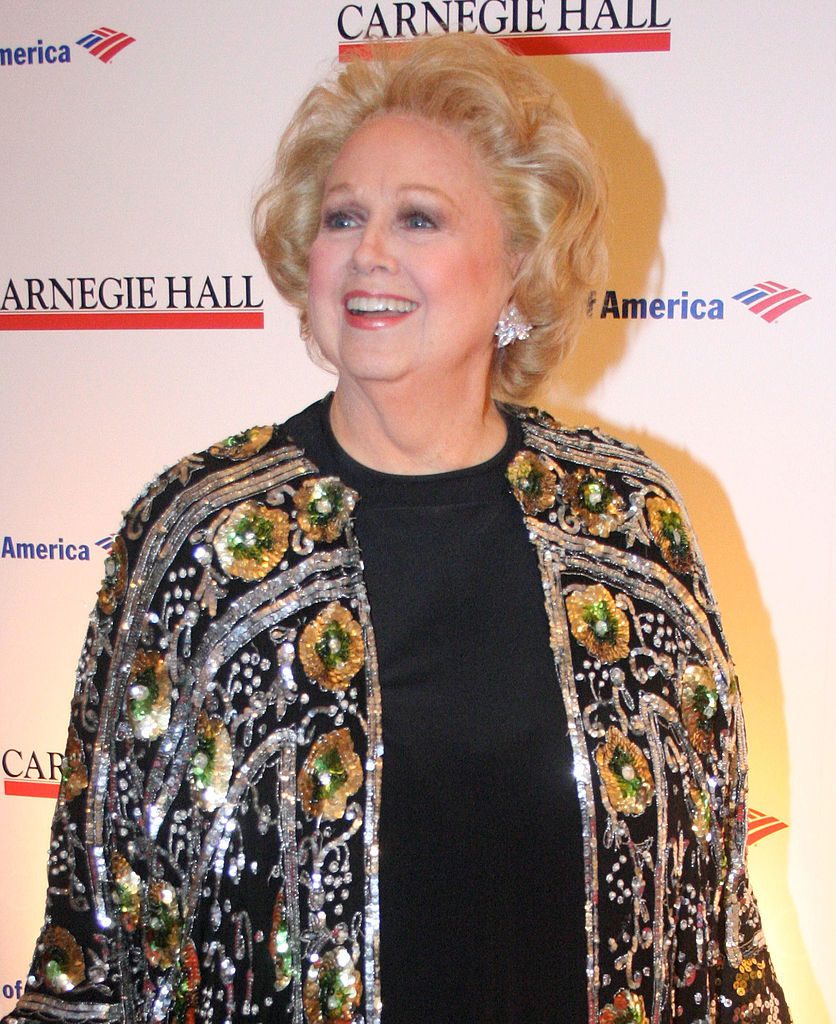Singers Glen Campbell and Barbara Cook Pass On
By • August 10, 2017 0 768

Music streams through the American consciousness like a balm, a salve, a surge of continuous electricity — encyclopedic, game-saving, life-saving, carried by its artists into a sparkling field of variety.
When we lose those artists all of a sudden, it opens up a book of history about American music, about talent and fame and its trajectories and attending hazards, but it also lets us hear the song democratic.
Glen Campbell and Barbara Cook never, as far as we know, sang together or performed together, and more’s the pity. Their hyphenated careers illustrated the hazards of success and fame, for sure. Campbell, the sometime bad-boy, brilliant guitar picker, country and pop star, had a career that was a cautionary tale about the dangers of celebrity — but also reminded us that there are indeed second acts in American show business life.
Something similar happened with Cook. The shy young woman who gained major successes on Broadway in “The Music Man” and “She Loves Me” initially almost fell from the musical map. Descending into alcoholism and near poverty, she recovered to become an icon of the Great American Songbook, a different kind of singer than the sweet ingénue who sang “Till There Was You” and “Ice Cream.”
Campbell died Aug. 8 at age 81 from the effects of Alzheimer’s, the disease becoming a part of his musical life. The same day, Cook, who was 89 and still planning performances, died of respiratory failure, her status secure as one of the exacting legends of the Broadway and cabaret stages, a pure, almost perfect, always one-of-a-kind singer.
Their trajectories were to some degree the same, rising from small beginnings. Cook’s father was a traveling salesman, Campbell was raised in Arkansas, one of 11 children.
After becoming a studio musician for country singers as well as for the Beach Boys, Campbell rose to stardom recording such hit songs as “Rhinestone Cowboy,” “Gentle on My Mind,” Galveston,” “Wichita Lineman” and “By the Time I Get to Phoenix.”
He had the looks of a wicked boy next door, landed his own variety show (of which there many in those days, 1969 to 1972) and got a costarring role in John Wayne’s “True Grit.” He also fell into something of a celebrity pit — he tore up hotel rooms, battled with longtime love Tanya Tucker, 20 years younger, and was addicted to alcohol and cocaine.
Cook also hit a wall after her early successes. She battled weight issues and became, according to reports, addicted to alcohol. “I was not some lady drunk. I was a real nonfunctioning drunk,” she recalled.
Yet the music never left. It was their saving grace, which not only continued through the rest their lives but enriched all of us in the process.
Campbell toured, married four times and demonstrated his ability to partner with just about everyone in the country and pop fields.
Cook reinvented herself, succeeding spectacularly. She was not a showy person, but she was a show-business star, onstage in cabarets and concert halls around the world. And there was the voice. It was purely organic, a part of her hitched to true emotions. She was a natural, but she was also a student of the American song as it evolved from Gershwin through Rodgers & Hammerstein to Sondheim.
She was and is identified with “Glitter and Be Gay” from “Candide,” the improbable musical-opera by Leonard Bernstein, perhaps the most difficult, hold-your-breath, quicksilver song a soprano can be challenged to sing.
As she came back, she inhabited the world she lived and sang in, just about all of it. She sang at the Metropolitan Opera, the White House and the Kennedy Center Honors, where an array of top Broadway performers from Patti LuPone to Sutton Foster saluted her. At the Kennedy Center, she mothered a cabaret series of top stars. Ill health cancelled another planned tour, but she sang from the stage in a wheelchair in 2016.
Campbell, too, never quite stopped. He kept going even after it was announced that he had Alzheimer’s, which he never quite comprehended but worked through, touring and winning a Grammy Award for “I’m Not Gonna Miss You.”
This writer interviewed Cook years ago. I remembered that she mostly talked about the music in great detail. It was a precise kind of thing about process. It was as if she embodied her particular territory of music, where, let’s face it, she reigned.
But you have to both see and listen to her. You can move through her music from the ingénue to the dazzling cabaret singer, blonde, laughing. The voice is hooked to emotion, and we become swains of appreciation; it’s a natural thing that never deserts or disappoints.
With Campbell, you’ll find a gift for collaboration, a joy in it: a rare appearance with late-stage Elvis singing “Long and Lonesome Road”; a stage full of top country stars including Merle Haggard, picking to Beethoven; a video of that improbably large hat on “Rhinestone Cowboy.”
With YouTube, it seems that passing on only leads to another act, the third act. That is their gift to us, a lifeline to musical joy.

